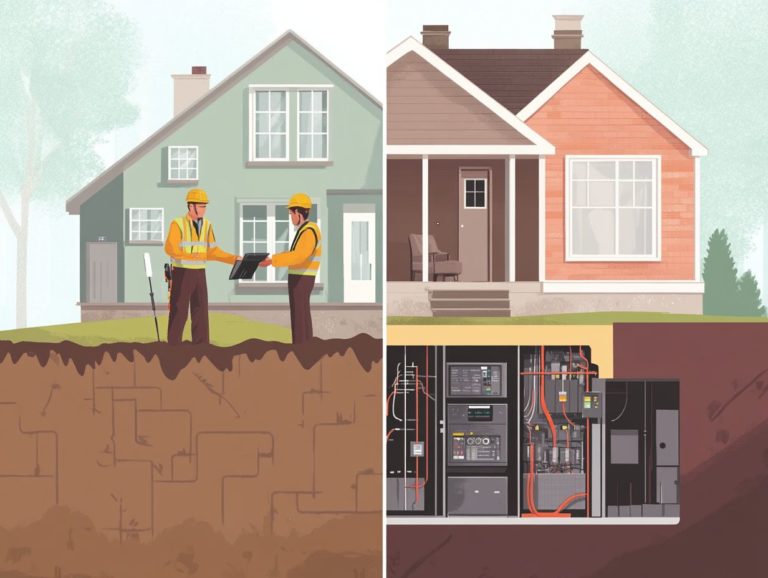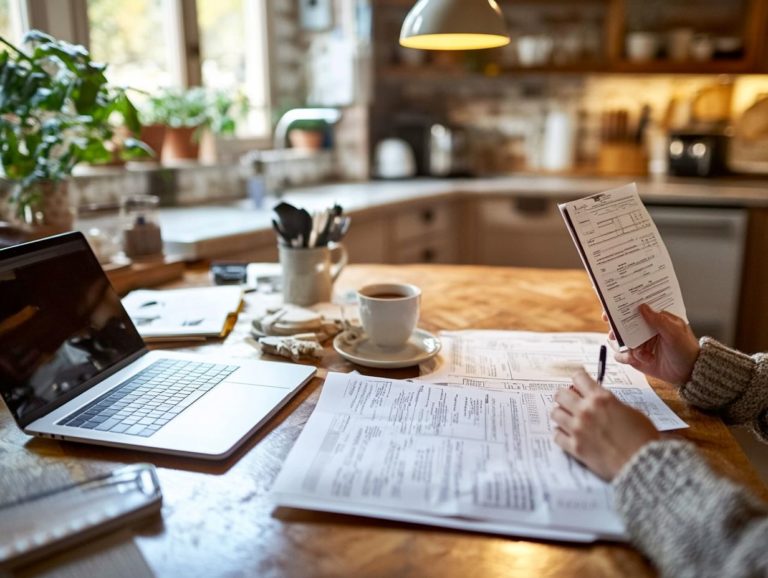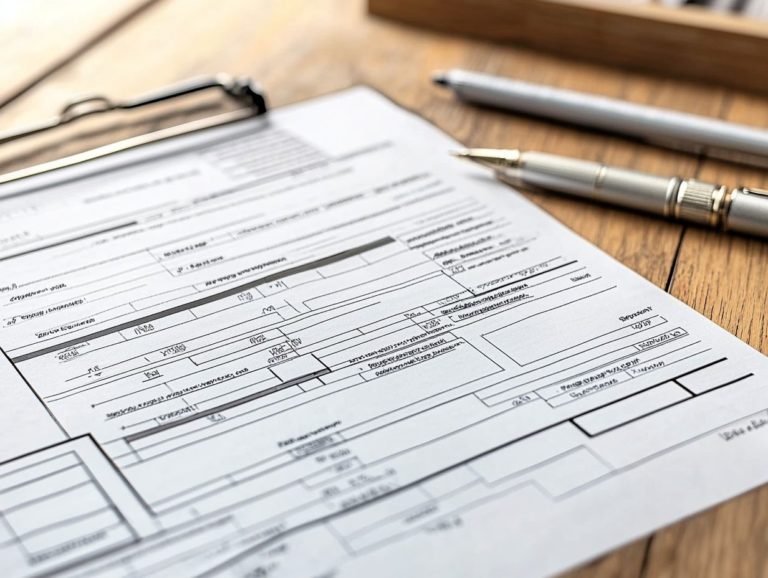5 Steps to a Successful Home Inspection
Buying a home is one of the most significant investments you will ever make. Grasping its condition is absolutely vital. A home inspection acts as your safety net. It helps you uncover potential issues before you seal the deal.
Get ready! Here are five essential steps to make your home inspection a success. From selecting a reputable inspector to negotiating repairs and knowing what actions to take afterward, this guide covers everything you need to safeguard your investment and make well-informed decisions.
Whether you’re a first-time buyer or a seasoned homeowner, these insights will empower you to navigate the inspection process with confidence.
Contents
- Key Takeaways:
- 1. Research and Choose a Reputable Home Inspector
- 2. Schedule the Inspection and Prepare the Home
- 3. Attend the Inspection and Ask Questions
- 4. Review the Inspection Report and Negotiate Repairs
- 5. Follow Up and Take Action on Any Necessary Repairs
- What Is a Home Inspection and Why Is It Important?
- Frequently Asked Questions
Key Takeaways:
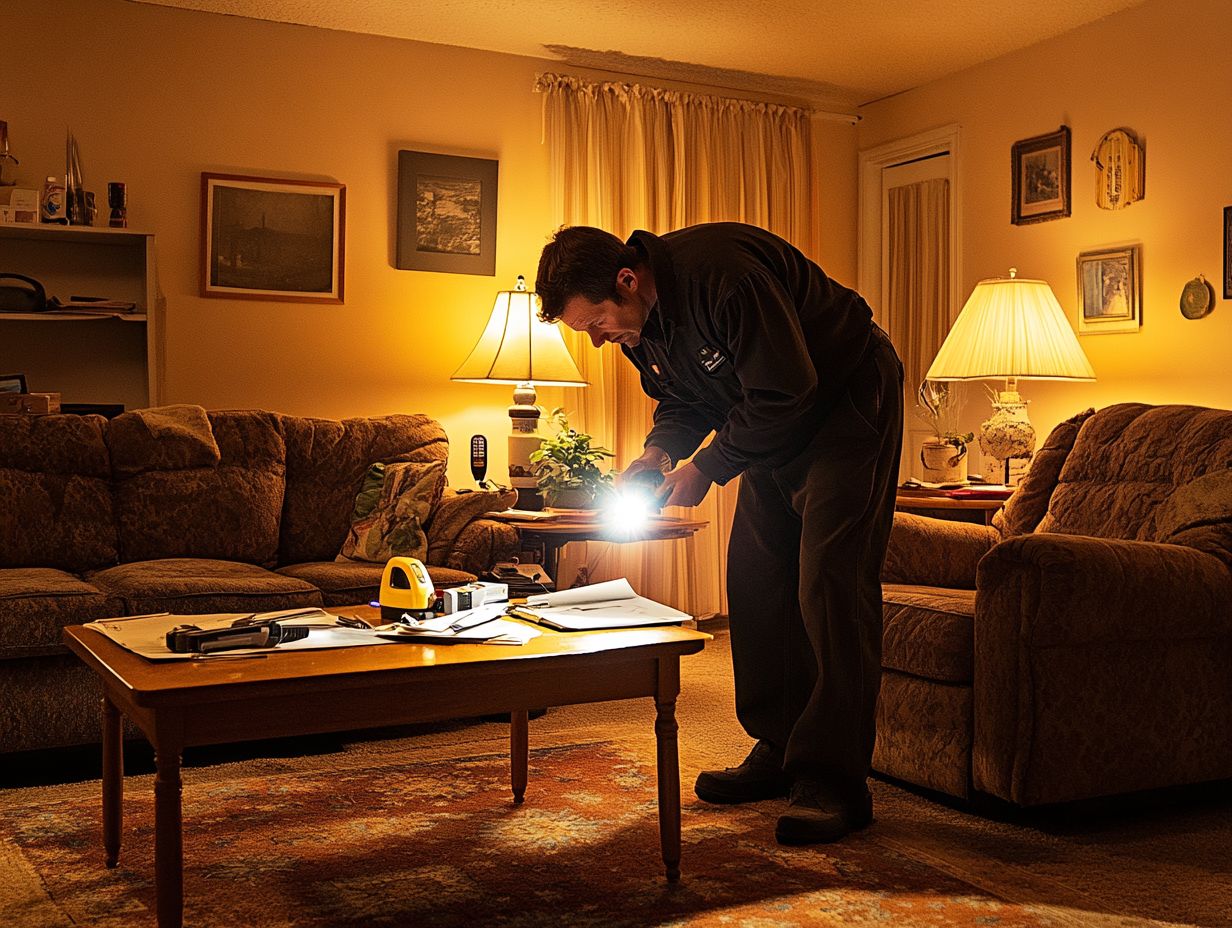
Choose a reputable inspector, attend the inspection, and review the report carefully to negotiate repairs effectively.
1. Research and Choose a Reputable Home Inspector
Selecting a reputable home inspector is an important step in your home buying journey. Their insights can greatly affect your home purchase and ensure you’re making a sound investment. Additionally, knowing how to prepare your home for a successful inspection can further enhance your buying experience.
A qualified inspector provides a comprehensive evaluation of the home’s condition. They also lend credibility to the process, especially if they are associated with respected organizations like InterNACHI. To ensure everything goes smoothly, consider following tips for a successful home inspection day.
When assessing potential inspectors, pay close attention to their online reviews, professional certifications, and experience with various types of property inspections.
It s important to choose someone who understands the conditions that can affect your offer. This expertise can help avoid problems during negotiations.
Taking the time to check out these professionals can prevent surprises after you buy your home, allowing you to enjoy your new space with peace of mind.
2. Schedule the Inspection and Prepare the Home
Scheduling the home inspection is essential. For a smoother experience, navigating the home inspection process involves ensuring clear access to all areas of the property.
To streamline this, identify a convenient time for the inspector and communicate any special requirements you might have.
Preparing your home involves creating an inspection checklist that guides you on what to expect. To ensure a seamless process, consider following 5 tips for a smooth home inspection experience. It’s crucial to secure easy access to utilities and ensure that spaces like attics, basements, and crawlspaces are free of clutter.
This not only assists the inspector in conducting a thorough evaluation but also helps you identify potential issues that could impact the home s overall condition.
3. Attend the Inspection and Ask Questions
Being present on inspection day grants you the invaluable opportunity to gain first-hand knowledge about the property. You can ask follow-up questions and delve into the detailed findings presented by the home inspector.
This hands-on experience illuminates potential issues that may arise after your purchase. It equips you to make informed decisions regarding repairs or negotiations.
Prepare a list of questions focused on specific concerns, such as the roof’s condition, plumbing integrity, and signs of previous pest infestations.
Learning how to interpret the inspector’s findings is crucial. Understanding which issues warrant immediate attention versus those that are merely maintenance considerations can significantly influence your future planning.
Engaging openly with the inspector fosters a collaborative atmosphere, enabling you to feel more confident in your investment.
4. Review the Inspection Report and Negotiate Repairs
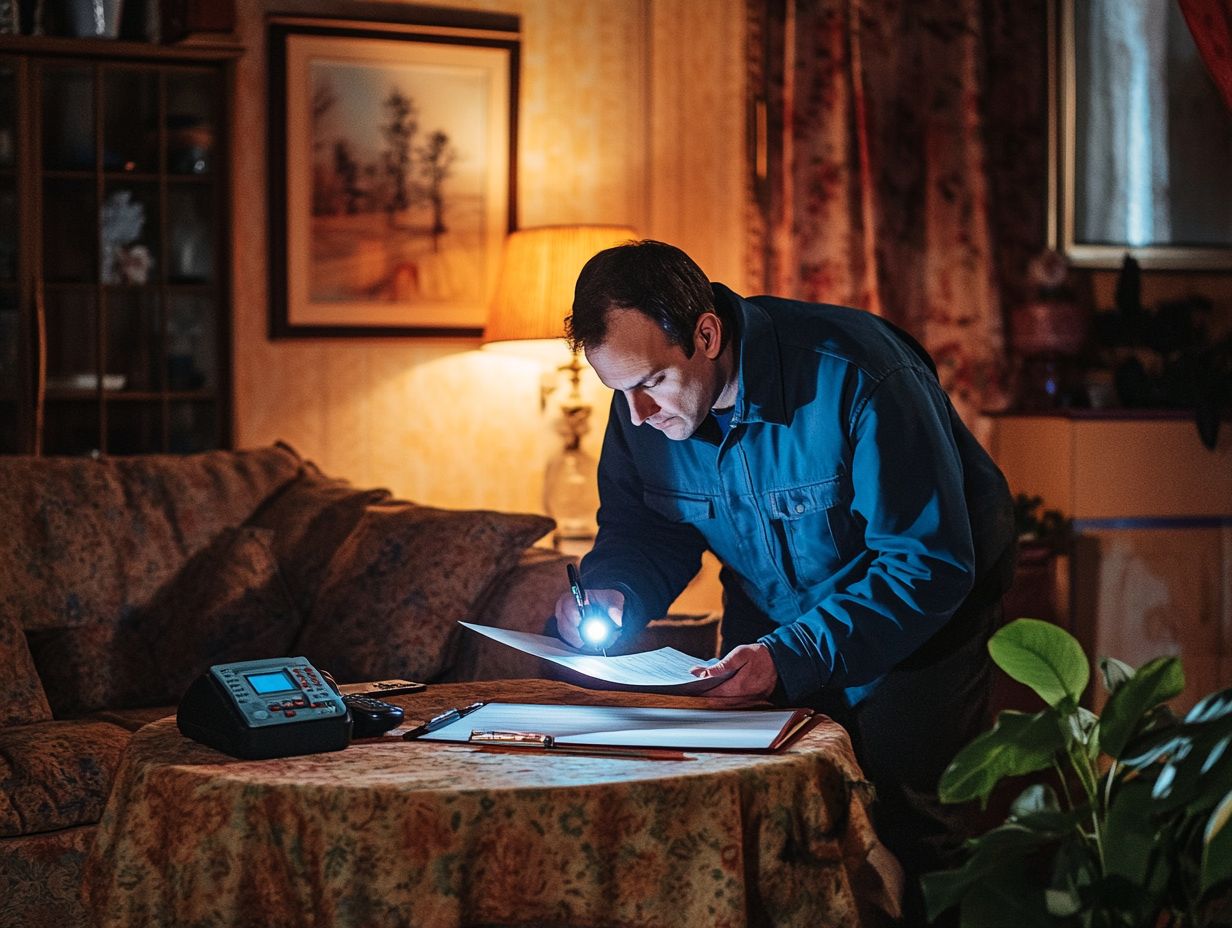
After the home inspection, reviewing the inspection report is essential. It highlights necessary repairs and serves as a powerful negotiating tool with the seller to address these issues before you finalize your purchase.
To navigate the report effectively, pay close attention to highlighted concerns. Categorize them into critical, moderate, and minor issues. This approach will guide your next steps.
Understanding the building inspector’s role is crucial. They provide an unbiased evaluation of the property’s condition and often identify areas needing extra scrutiny, such as pest or radon testing. These inspections can uncover hidden problems that could impact safety and the property’s value.
In negotiations, leverage the findings from the report to advocate for necessary repairs or price adjustments. This will help you secure the best deal possible!
5. Follow Up and Take Action on Any Necessary Repairs
Following up on your home inspection findings and addressing necessary repairs is vital for your property’s safety and longevity, especially if you’re selling.
After reviewing the inspection report, pinpoint the critical areas requiring immediate attention. Engaging a qualified building contractor for these repairs is the next wise move. Choose someone with experience and stellar reviews.
Communication is crucial here. Address any unresolved issues and establish a clear timeline for completion. Documenting all repair requests and responses helps you track progress and protects you from potential disputes down the line.
Capturing photos before and after repairs can be invaluable. These serve as solid evidence of the work completed, ensuring everything meets your standards before you confidently close the chapter on the inspection process.
What Is a Home Inspection and Why Is It Important?
A home inspection is a comprehensive evaluation of a property’s condition. It offers important information that can influence your purchasing decisions and help you negotiate better mortgage interest rates during the real estate transaction.
This process entails a thorough examination of various systems and structures, including plumbing, electrical systems, roofing, and safety standards.
For both residential and commercial properties, a home inspection is crucial for identifying potential issues that may not be immediately visible. By uncovering hidden problems, it enables you to make informed decisions and potentially save on costly repairs in the future.
With this knowledge, you can approach negotiations with confidence, ensuring you understand what you re investing in and are equipped to mitigate risks effectively.
What Should Be Included in a Home Inspection?
A thorough home inspection should include a detailed checklist covering critical areas such as structural integrity, electrical systems, plumbing, and essential safety features like carbon monoxide detectors. To ensure you’re well-prepared, follow these essential steps for home inspection preparation, which alert you to dangerous gas levels.
Your checklist should encompass the roof s condition, checking for leaks or damage, alongside an inspection of the foundation for signs of settling or cracks.
The inspector will evaluate the HVAC systems heating, ventilation, and air conditioning confirming they function efficiently and have been adequately maintained. They might even use advanced tools like infrared cameras to uncover hidden moisture issues behind walls, while moisture meters help assess potential water damage.
By meticulously reviewing these elements, you can make informed decisions about your purchase and anticipate future maintenance needs. Don’t wait! Schedule your inspection today to make informed decisions.
What Are the Common Red Flags to Look for During a Home Inspection?
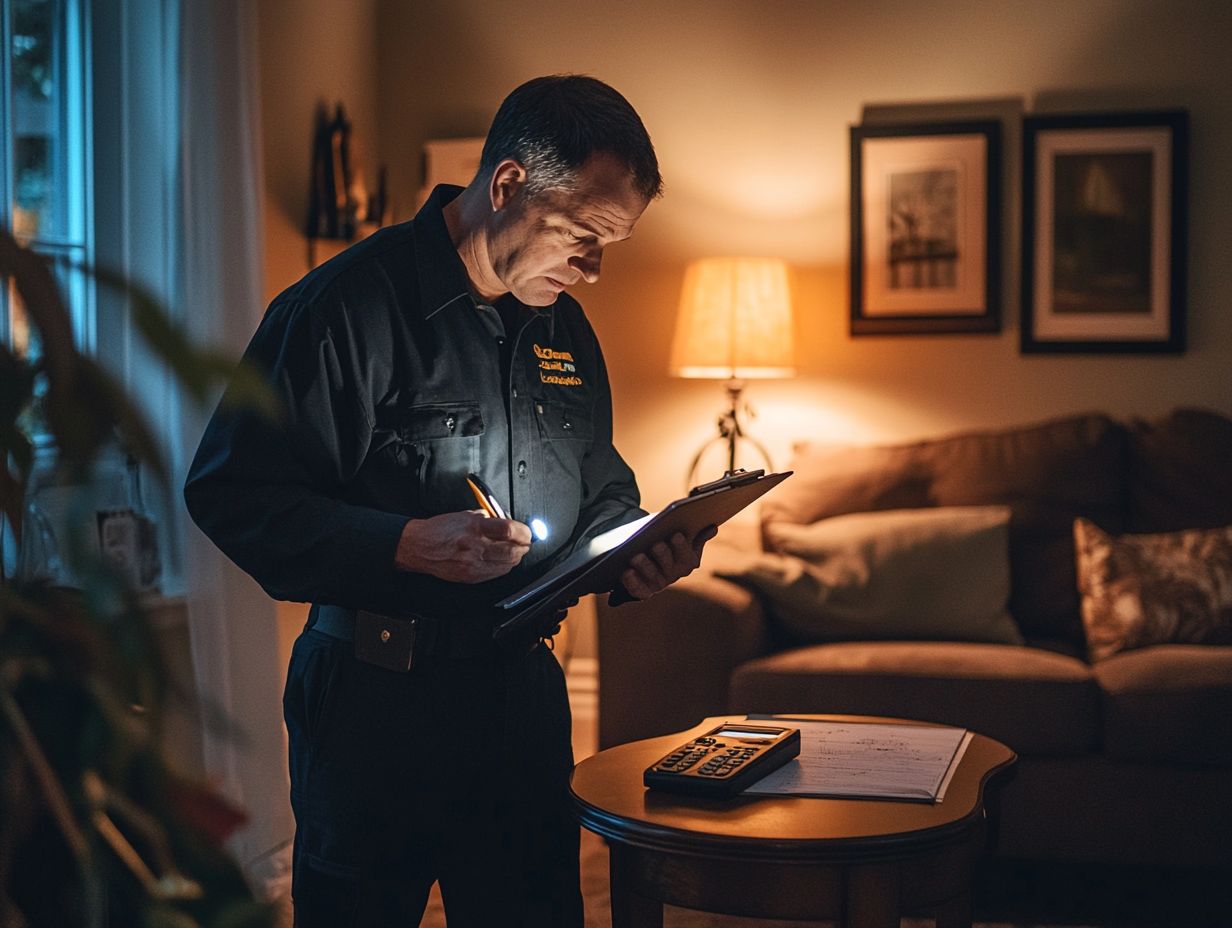
During a home inspection, you may encounter several common red flags that indicate underlying issues with serious effects on the property. Signs of water damage, pest infestations, and structural inconsistencies are concerns a qualified building inspector should address without delay.
While cosmetic issues can be alarming, remain vigilant for more serious indicators of trouble. For example, visible mold often indicates ongoing moisture issues. These problems are frequently linked to poor ventilation or leaks. If you spot termite droppings or mud tubes, it signals severe pest issues that threaten the home s integrity and can lead to expensive repairs down the line.
Structural abnormalities such as cracks in the foundation or signs of settling may hint at more severe problems affecting the property s overall value. This makes it essential to engage in thorough inspections and seek professional guidance to navigate these potential pitfalls effectively.
How Can a Homeowner Prepare for a Home Inspection?
You can make the inspection much easier by preparing your property in advance. Ensure clear access to all inspection areas and make sure the water, electricity, and gas are working to facilitate a thorough evaluation.
Take specific steps such as decluttering spaces to allow easy navigation. Ensure that all utilities are fully operational to create a favorable environment for inspectors.
Assembling a comprehensive inspection checklist can streamline the process by providing necessary documentation and access to essential areas. A well-prepared home not only reduces surprises during the inspection but also instills confidence in potential buyers, especially when they know 5 things to know about home inspections, demonstrating that the property has been meticulously maintained.
What Are the Benefits of Attending the Home Inspection?
Attending the home inspection offers numerous advantages for you as a home buyer. It gives you the chance to ask follow-up questions, gain valuable insights into the property’s condition, and fully comprehend the details of the inspection report.
Being there lets you see issues firsthand. This real-time engagement deepens your understanding of the property and enables you to address any red flags directly with the inspector.
With this knowledge, you are better equipped to negotiate effectively. This may allow you to request repairs or even price reductions based on solid findings. Actively participating in the inspection process instills confidence in your decision-making, which is essential when making such a significant investment.
What Should Be Done After the Home Inspection?
After the home inspection, take the time to carefully analyze the inspection report and formulate any follow-up questions for the inspector. To ensure you’re prepared, consider reviewing how to prepare for a home inspection beforehand. Be ready to negotiate repairs based on the issues identified within the property.
Understand each concern well, as some might present significant safety risks or lead to costly repairs in the future. Frame your questions regarding the severity of certain findings and whether they re typical for a home of that age and condition.
Engage the inspector in a thoughtful discussion to clarify uncertainties and determine which issues truly require your attention. Armed with this knowledge, you ll be in a stronger position to negotiate with the seller, ensuring necessary repairs are made promptly to prevent complications down the line.
Frequently Asked Questions
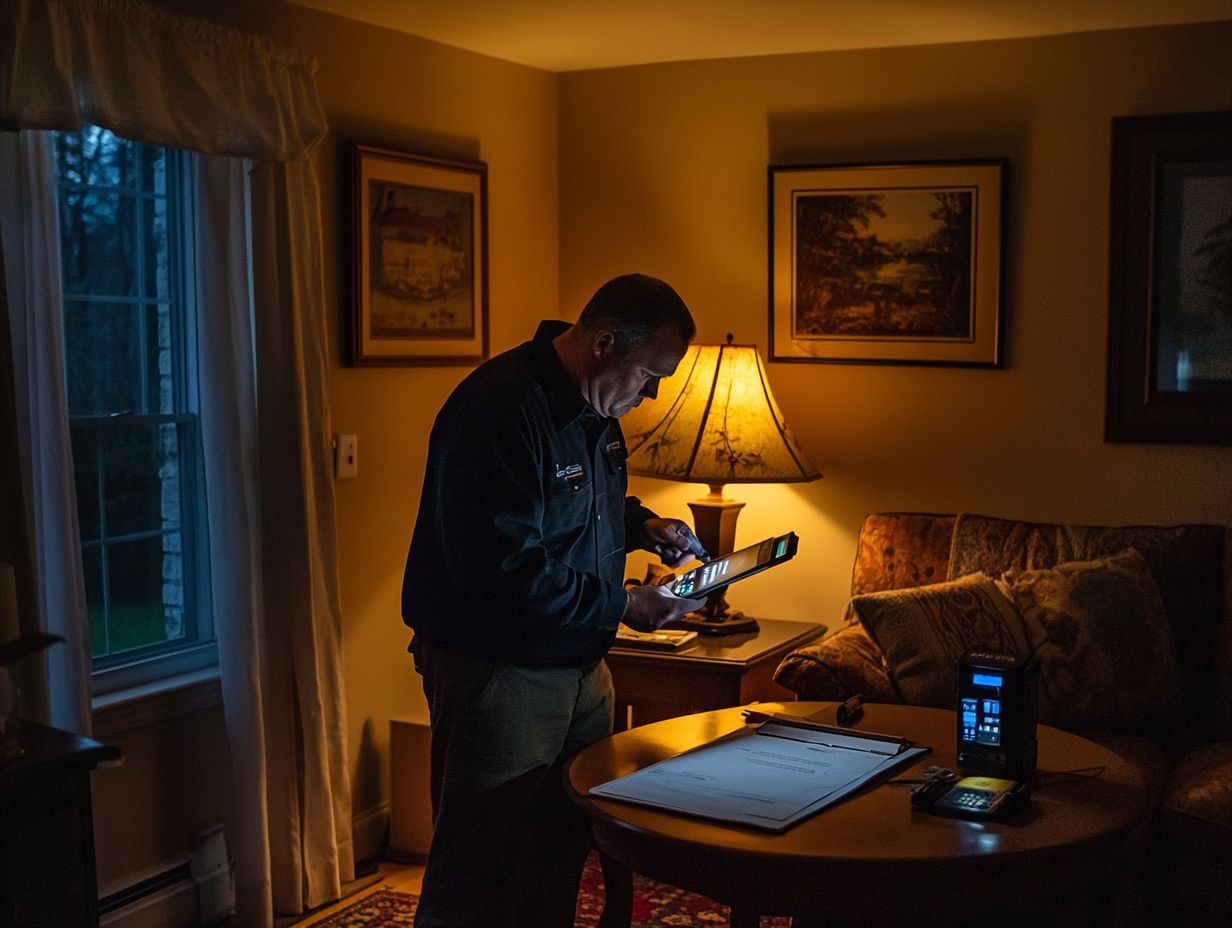
What are the five steps to a successful home inspection?
- Research and hire a qualified home inspector.
- Schedule the inspection and gather necessary documents.
- Attend the inspection and ask questions.
- Review the inspection report.
- Address any necessary repairs or negotiations with the seller.
How long does a home inspection typically take?
A home inspection usually takes about 2-3 hours. The time can vary based on the size and condition of the house.
Do I need to be present for the home inspection?
You don’t have to be there, but it’s a great idea to attend. This way, you can ask questions and learn more about any potential issues.
Can I do a home inspection myself?
It’s best not to inspect a home on your own. Professionals have the training to find issues and provide an unbiased report.
What should I look for in a home inspector?
Look for a home inspector who is licensed and has a good reputation. Check their sample reports and ask for references from past clients.
How soon should I schedule a home inspection?
Schedule your home inspection as soon as your offer is accepted. This gives you time to review the report and handle any repairs or negotiations before closing.
Don’t wait! Get your home inspected today to ensure a safe and sound investment!

